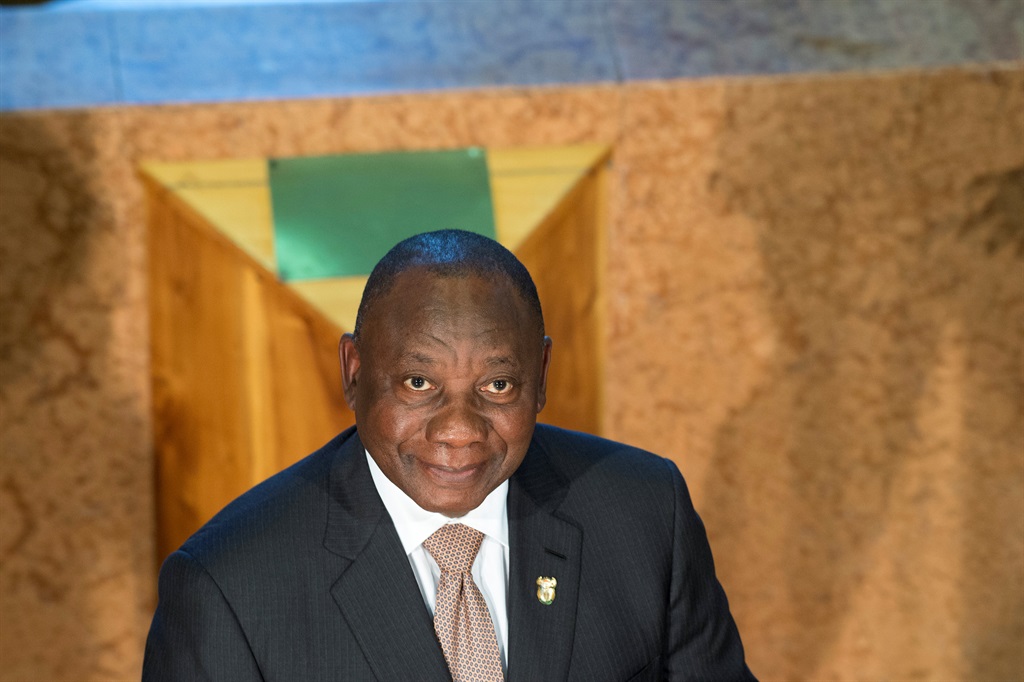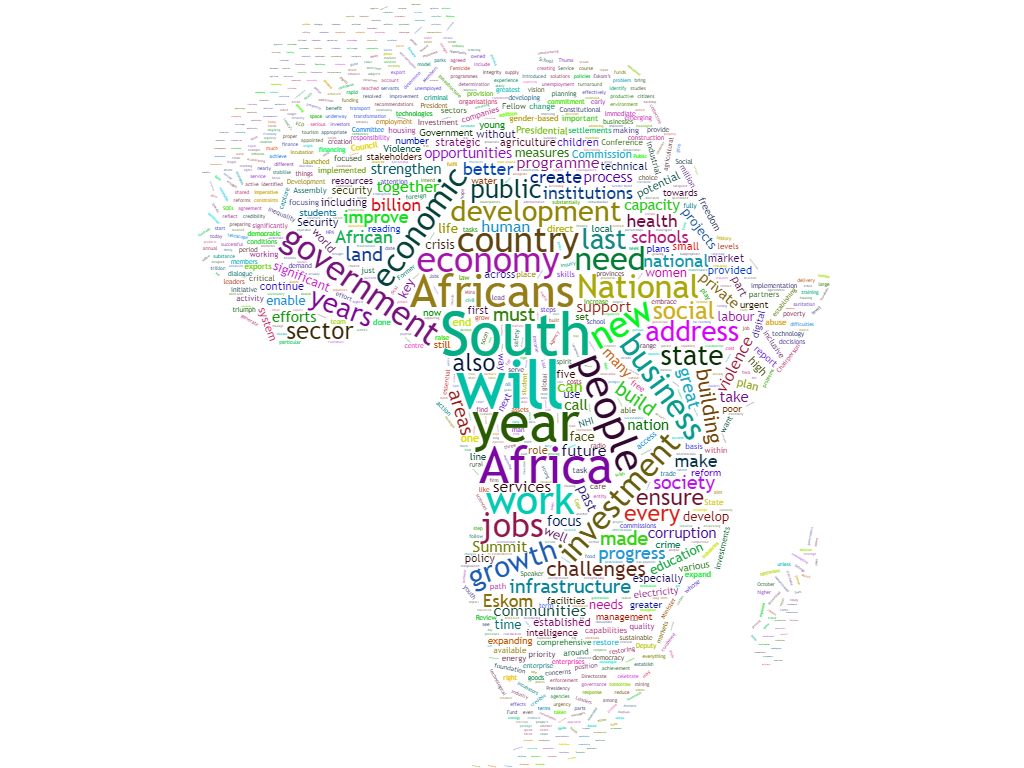
The word that appeared 111 times in Thursday’s state of the nation address was “will”.
In a time of uncertainty when it comes to the state of governance in the country, the use of this word is empowering.
It brings some sort of permanence to the flakiness of “might” and offers promises to a nation in need of guidance and direction.
The state of the nation address is one of the most important events in the calendar of Parliament.
It happens before a joint sitting of the National Assembly and the National Council of Provinces, and despite much of the pomp and circumstance being deflated this year by the announcement of budget cuts and no gala dinner, it was an orderly, formal affair, with none of the disruptions that characterised the addresses of his predecessor, Jacob Zuma.
Ramaphosa’s nearly two-hour speech addressed many of the newsworthy events taking place in the country, including the various commissions looking into various issues – in particular state capture.
But his focus was on the people at the heart of the nation: Africa and Africans rounded up the top five words used in his address.
Next on the list were people, work, economy, country and “new”.
Ramaphosa didn’t shy away from the hard stuff.
All the buzzwords that make headlines these days featured: government, investment, business, national, economic and jobs.
In this vein, he identified the five most urgent tasks at this moment in our history.
“These are tasks that will underpin everything that we do this year,” he said.
These five are:
• Accelerate inclusive economic growth and create jobs;
• Improve the education system and develop the skills that we need now and into the future;
• Improve the conditions of life for all South Africans, especially the poor;
• Step up the fight against corruption and state capture; and
• Strengthen the capacity of the state to address the needs of the people.
The opposition parties were largely well-behaved and notwithstanding a few chirps from the benches, Ramaphosa was afforded the respect of delivering his speech.
Despite opening with a joke about meeting with opposition leaders the day before the event, and saying he would sing Thuma Mina (the Hugh Masekela song “Send Me” that he invoked during his first address to Parliament last year) with Mmusi Maimane if Julius Malema made it to the presidential seat, Ramaphosa didn’t mention the opposition leaders again, apart from towards the end when he invoked Thuma Mina again and called on all opposition party leaders to agree to being “sent by this great country”.
ANC deputy secretary-general Jesse Duarte said later that she didn’t know what had happened in Ramaphosa’s meetings with Malema and Maimane before Thursday’s event but, whatever it was, she was grateful that there were no disruptions.
Malema said that Ramaphosa had answered the questions he had over the Bosasa saga regarding money that was donated to his campaign, and therefore there was no reason to disrupt Parliament.
One person who Ramaphosa mentioned quite prominently was Advocate Shamila Batohi, the new national director of public prosecutions, who in her interview for the position spoke about “inspiring people” and reintroducing credibility to the prosecuting authority.
As part of his commitment to clamp down on corruption, Ramaphosa announced an investigating directorate that would fall under the National Prosecuting Authority and would deal with serious corruption.
Other ministers who featured in the state of the nation address were the education ministers – basic education minister Angie Motshekga and higher education minister Naledi Pandor were mentioned by name as Ramaphosa announced various changes to the education system.
These included early childhood development initiatives, the reintroduction of technical schools and technical subjects, the issue of tertiary education fees, and the violence that was currently playing out on campuses as students protested against obstacles to education.
On the whole, Ramaphosa was largely positive, announcing some concrete solutions to some of the problems that have been left to languish in the country for so many years.
He ended his speech saying that South Africans “will not surrender to the forces of pessimism and defeatism”.
He spoke about “the eternal optimism of the human spirit that kept hopes alive during our darkest time” and said it was “this optimism that will carry us forward as we face a brave new future”.
Optimism is catchy. Let’s hope the Kool-Aid will still be flowing after the elections on May 8.
1. Will (111 times)
2. South (74)
3. Year (44)
4. Africa (34)
5. Africans (29)
6. People (25)
7. Work (25)
8. Economy (22)
9. Country (22)
10. New (22)
11. Government (21)
12. Investment (20)
13. Business (20)
14. National (20)
15. Economic (20)
16. Jobs (20)
17. Need (20)
18. Development (18)
19. Growth (18)




 Publications
Publications
 Partners
Partners









